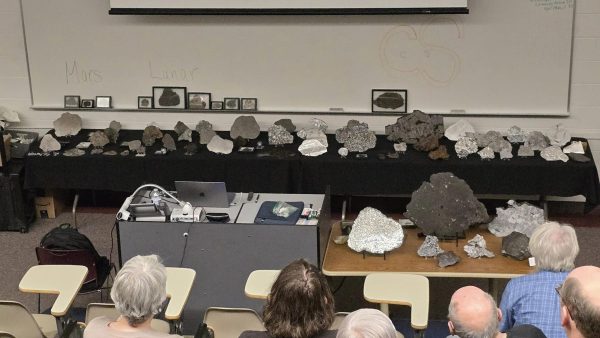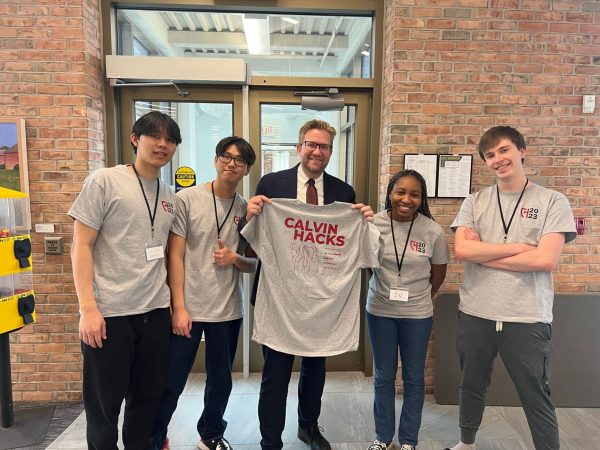What is it like to be a female engineering major?
At Calvin the engineering major is 15-20% female, close to the national average of 20%, and in the class of 2023 only 16% of the students are female. 17 out of 108 freshman engineers are female, and each of them are choosing to enter a male dominated profession.
According to the department chair, Professor Gayle Ermer, oftentimes the decision whether or not for a female to decide to study engineering occurs in middle school — a time when awkwardness reigns supreme and boys and girls are considered polar opposites. That is where interventions from the Society of Women Engineers come into play, and how they provide some connections between the middle schoolers and the engineering program.
Professor Ermer said that Calvin is “limited by [their] pipeline” of students because other schools that have many more female students have a much larger application pool to choose from, meaning that there are a larger number of both males and females applying to the school so the school has the ability to choose more even numbers. Calvin offers almost every student an opportunity to prove themselves in the program, and other schools don’t do that. Therefore, a reason why there are such low female numbers is from who is applying to attend Calvin.
Calvin has been focusing on emphasizing diversity in the program and portraying engineering as a service profession to encourage more females to choose the program. An example of this is SWE. Lillian Spackman, the president of SWE, shared the club’s goals for their participants: personal development, professional development, and community building. These goals are not solely specific to engineering, and that is an important factor to the outreach to the females in engineering. The focus is on engineering, but more so on the women. They strive to provide mentors and professional networks, empowering Calvin students to flourish.
However, are the students truly feeling empowered? Spackman raised a good point when she added that women are more likely to stay in a profession if they have a role model in it. While that is not all women, as she acknowledged, statistics prove that it is many women. Therefore, outreach must be direct and effective when seeking women for male dominated professions.
Calvin has promoted an outreach towards women in engineering through seminars, SWE, and by ingraining it in the classes. Calvin also acknowledges, on behalf of Professor Ermer, that they would like to expand with more women faculty, but students, like Spackman, would like to see more new initiatives for women in engineering.
Michelle Widjanarko, a senior engineering major, states that she believes many females enter the program with an “internal uncertainty” about whether or not they belong there. Widjanarko says that many professors have made her feel encouraged, but SWE has had the largest impact on her experience in the program. SWE allows for there to be opportunities for women in the program without there being a stigma of “favoritism” by the school; instead, it is a student led initiative.
Widjanarko adds that she is mostly satisfied with what Calvin’s engineering program is offering and how they treat women, but she — and others who have chosen to stay anonymous — would like to see more data on the retention rate of women in the engineering program. This data could be used for marketing to potential students, or as a reflection to see how Calvin could improve the program.
Another female student in the engineering program who prefers to remain anonymous counters with a different perspective. Her opinion on whether or not women in the engineering program should be differentiated from the men is a hard no. She says “that is not something that would happen in the workplace so it wouldn’t be [the] real world.” From her experience in a recent internship, she adds that she was one of three females in a 20-30 person engineering department. She believes that in order to be prepared for that type of work environment, women and men in the program should not be differentiated at all, but agrees that SWE offers great support
Similarly to Widjanarko’s perspective is another female student in the engineering program who prefers to remain anonymous. She admits that Calvin does a good job in “making women in the engineering program feel equal and respected;” however, regarding the males students there have been “many times when I feel I need to prove myself worthy of my major choice to them.” She continues by describing how there is “unintentional exclusion” between males and females. She feels like she needs to “work hard to prove [she] can keep up with them, even if they have the exact same abilities.”






